Marie Darah is the new European poetry slam champion. They had just started to write slam and to compete one year ago. This follows the publishing of their first story “Depuis Que Tu N’as Pas Tiré” by publisher maelstrÖm reEvolution and finalist for the Fintro literary award 2021. An urban tale, an ode to Brussels following Marie losing themselves in the nightlife and finding their way back to life after surviving a hold-up.
We met with them to discuss this incredible journey and their future projects, the staging of the Brussels story with Cloé du Trèfle and the writing of their next book “Sous Le Noir Du Tarmac” filled with texts addressing serious topics such as trauma, racism, LGBTQphobia, pedophilia, incest with a refreshing touch of optimism.
Marie Darah, you won the 2021 European Poetry Slam Championship! How do you feel about it?
One year ago, I started spoken word slam when one of my friends told me that the story I had just written sounded like slam style. I was surprised and she told me to try signing up for an open stage. According to her, the way I write was linked with this kind of speech art. I participated in Fleurs Du Slam 2021 at Théâtre 140. I was the last one signing up. It was so new for me, and they told me just before going on stage that the text I was going to read had to last not more than 3 minutes. I discovered the rules of Slam like applauding the artist at the beginning and the end and just snapping fingers during the performance to support if you like it. This was my first stage and it made me immediately understand that it was what I wanted to do with my life. Then another lockdown happened, and I just had the time to do three stages in real life. I continued in videoconference anyway. Then I did the FISPA, (Festival International of Slam Poetry Acadie) in Moncton, Canada. I took part in the “joute”, the battle competition. After that, it was the Slam National in France. I then tried a competition in Belgium, Slameke that I won, and La Zone in Liège. So, I won the quarter, the final, the Belgian championship, and after the European championship. It was such a surprise because the level was high and all the texts were moving. I’m so proud to have shared my first year of slam with all these beautiful people who write such beautiful things. All the topics approached are about consciousness and awareness, many things that don’t work in our society and need to be addressed.
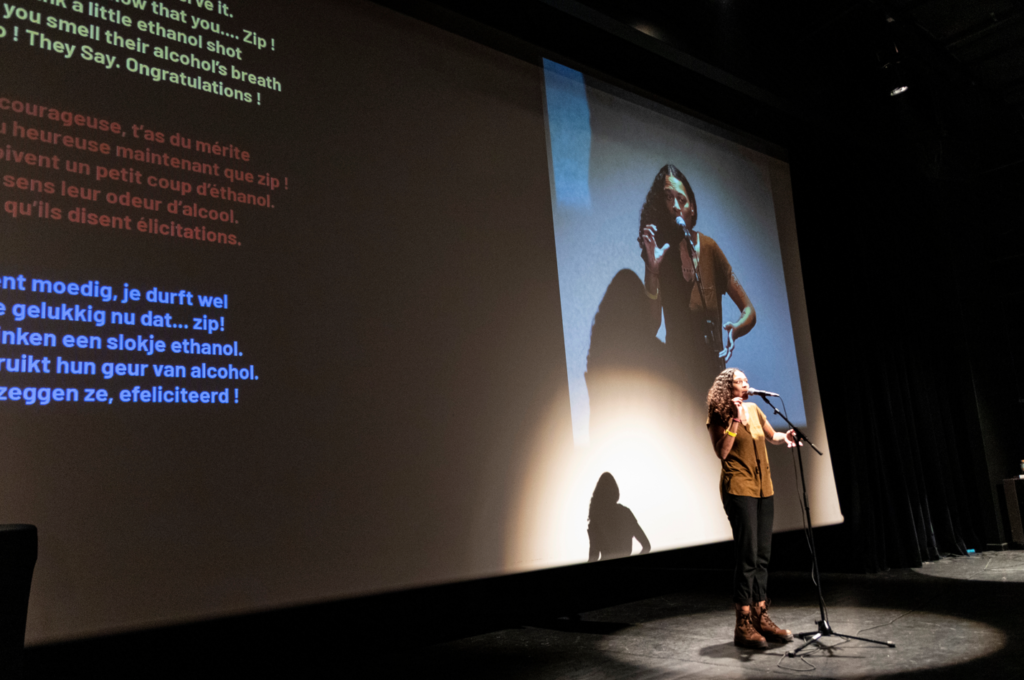
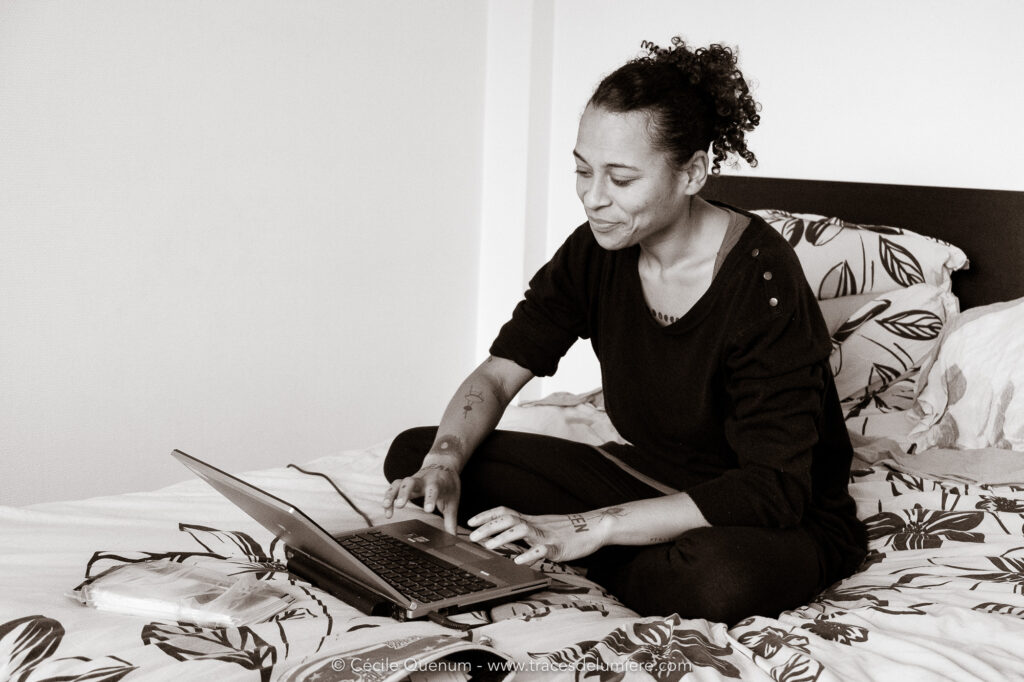
Can you tell us about your slam writing? How did you choose this way of expressing yourself and What are the main topics you like to write about?
As I just said, I was not prepared at all to discover slam so fast. I think I just write the same way as I speak, and it happened to translate into slam well. I don’t make much of an effort to write slam. I listen to my inner voice and put my feelings into poetry words. I think when I stopped drinking, I found my purpose in life. Before, I didn’t really have one. I was the victim of a hold-up, at a restaurant I was working in, and it shook me a lot. I thought to myself that if I was staying here and alive, I needed to do something with my life, something that I could be proud of and that would make sense for me. The book I wrote is really about that story. Since the attacker didn’t shoot, it woke up something in me. It woke up a purpose, a sense. I needed to use the tools that I have and work hard. In my slam, I write about themes that sometimes people are not allowed or don’t feel allowed to discuss. I write about taboos but with kind regard. Incest, pedophilia, racism, LGBTQphobia, everything that shouldn’t be part of society. There are many systemic problems in society. I feel the need to speak about them to try to make people realize that it exists. I experienced trauma in my childhood. The bad things that happened to me are not normal. If society was looking at the root of the problem and trying to fix it, maybe it would not have happened. Looking at problems as isolated events prevents us from realizing the actual problem. It prevents monsters to understand how not to be one. People must realize that it’s a part of our society, that there is not just one isolated monster, but it’s like a pulsion because people are lost. Society is incoherent and that’s why we need to stick together, see the problem and search for ways to fix it. Before reaching this healing stage, people must speak up. My purpose is to speak up because I think many people live the same thing but are not able to express it. I try to do it with my heart, and I think it’s important. People need to be gentle with themselves to get over trauma and speaking is one way to do it. I decided to be a witness of what happens in society when you are intersectional, when you are black, when you are mixed, when you are a woman or not only a woman. This is my motivation, to try to raise awareness about all this trash and try to make people find a way to change it.
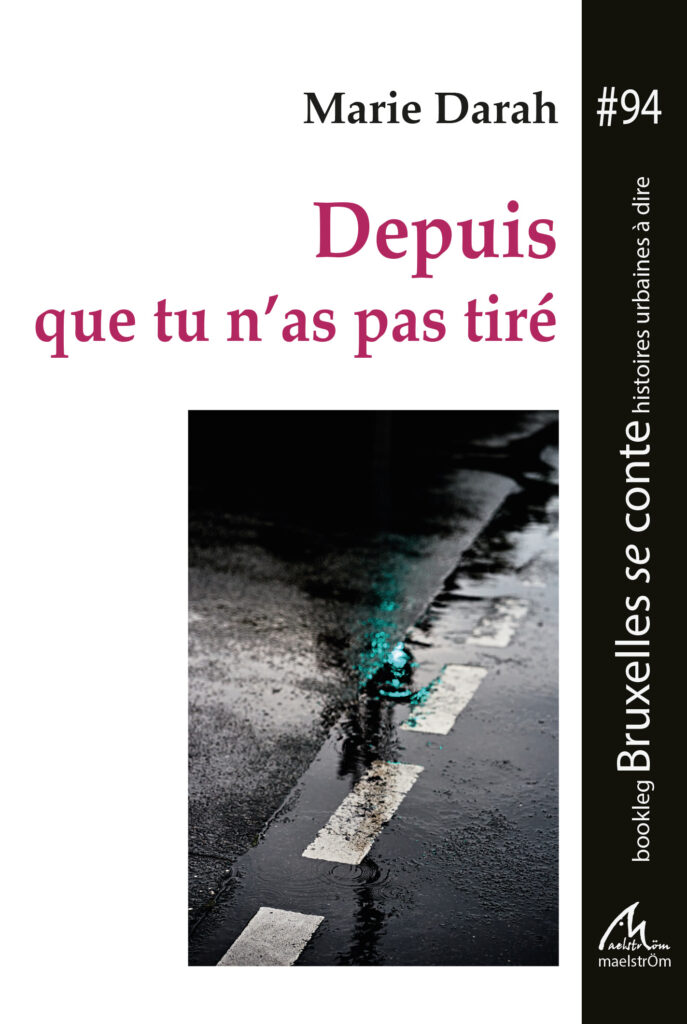
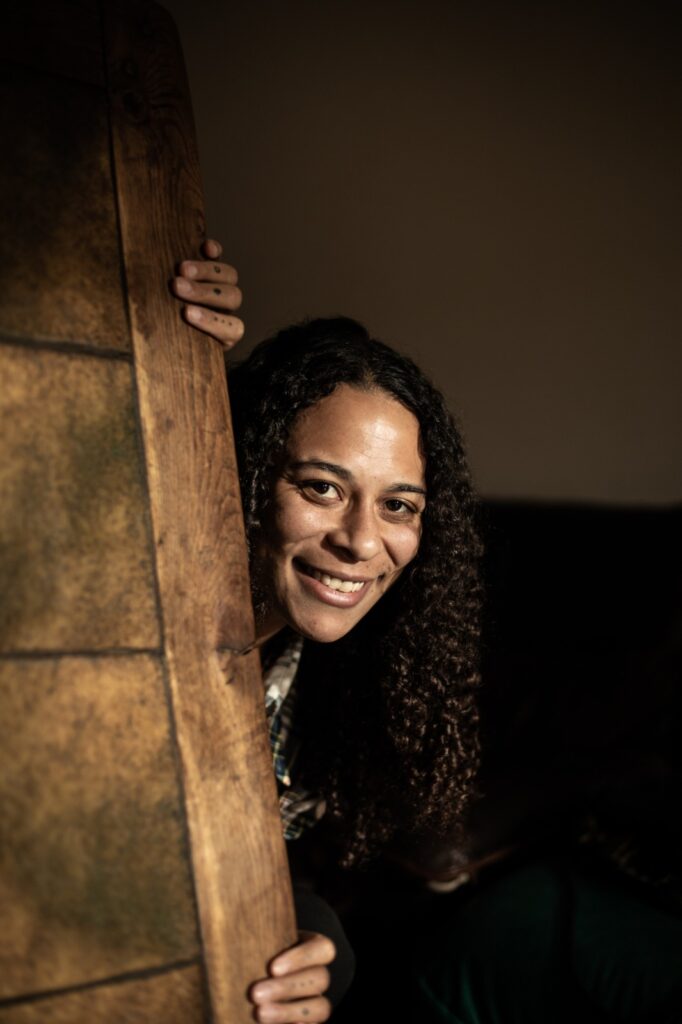
You studied at the Conservatoire and slam is not your only talent. Theater, dancing, singing writing and music are also some of your art forms. Could you tell us about your background and your journey?
I have the chance to have a mother who understood quickly that I had something with art. I’m a big fan of Lara Fabian and it always gave me empowerment in life. I felt like it was kind of my sister since I am an only child. Seeing her, as a Belgian, taking off to Canada and everything, gave me the will to maybe do something like that and take control of my own life. I was always naturally drawn to art, so I asked to play the piano when I was six years old. My mother worked a lot to pay for it and I got it. I took piano lessons and solfege and then went to a choir. There, they immediately told me that I was singing too loud and that I should switch to opera. I listened to them and started opera at eight years old. It felt like such a natural way for me to express my emotions, but I wasn’t working hard. I like to work but I was never into being the best. I was just doing it to enjoy and express myself. I couldn’t continue in high school since I was the only student interested, but it was possible to do theater. I took those theater lessons, and I continued some opera during my free time. I tried to apply to the Conservatoire in opera, but I didn’t have the level. I felt like I was not enough coming from Charleroi and not even having ever seen a real opera, not even on TV. I was 17 years old, inexperienced and trying to apply next to 30-something much more experienced people. After failing, I decided to try to apply for theater instead. I barely passed. I wasn’t much more experienced than for opera. I went to see plays only twice with school but at home, I was watching old VHS tapes with French and Belgian boulevard comedy that my mother had recorded. That is what impressed the jury at the Conservatoire, the fact that I knew so much about boulevard comedy at the age of 17: Jacqueline Maillan, Maria Pacôme, … This is how I entered the Conservatoire in speech arts. I also did some dance lessons as a child and learned how to use my body on stage to express myself. I also studied musical for a year. So, it’s true that I tried many different things. Being able to mix all those artistic disciplines and play in a musical would be a dream for me, or … sing with Lara Fabian!
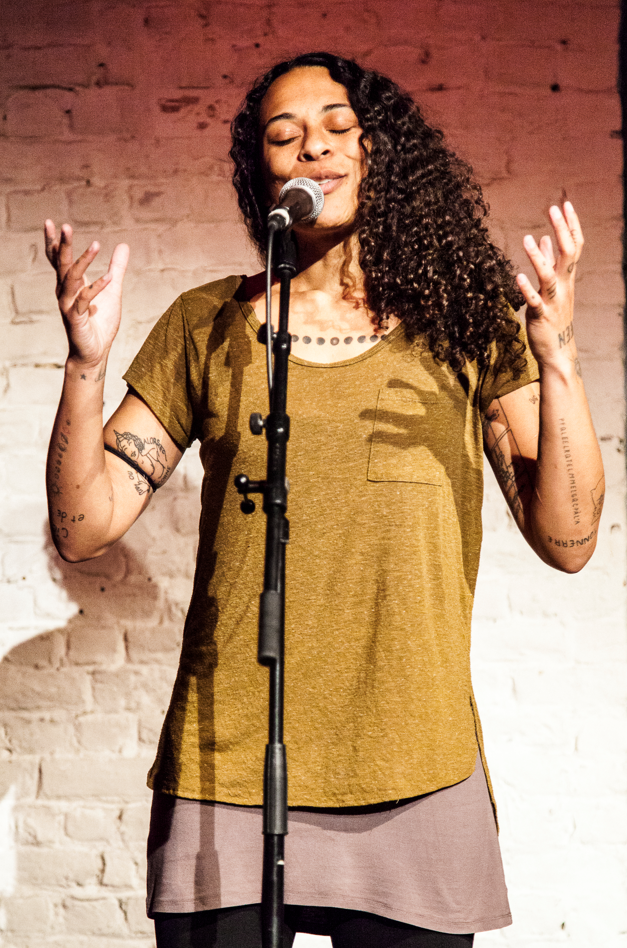
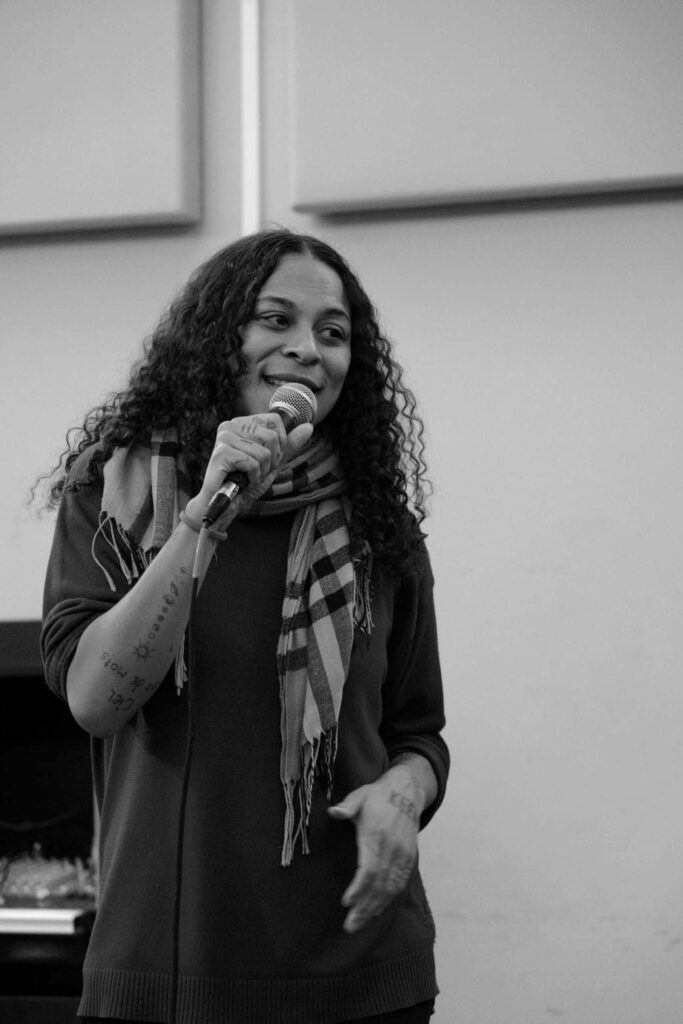
You have already published your first short story presented as an urban tale. You grew up in Charleroi but “Depuis Que Tu N’as Pas Tiré” is kind of an ode to Brussels. Could you describe us a bit this intimate relationship you have with our capital?
I grew up in Charleroi and this felt bad for me. I’m linked with this town because it’s my town, but it was a nightmare for me back then. Coming to Brussels was my escape plan to change my life. It’s when I came here that I realized what I had lived before and that it was not normal at all. I just fell in love with Brussels instantly, but I was also diving in darkness. I started drinking. I wasn’t feeling so good during my years at Conservatoire. I discovered another world. One that I had hoped to escape to for a long time, but it made me feel like it was not fair. In Brussels, there are so many theaters, people, culture, and possibilities everywhere. It felt like an injustice. I didn’t know that this life was possible before. I went far with the drinking problem and the addiction to drugs. At the same time, it felt magical for me to discover the nightlife and the bars. It is harmful, but people are such sweethearts. They drink because they are unhappy, and society makes them unhappy. Now that I stopped drinking, I realized that it was self-medication to go through life. Drinking is not the reason for your problems but more the consequence of it. I learned so much during those hours spent in bars with wonderful people telling me all sorts of stories about Brussels, about themselves, about the way they arrived in the capital with hopes and dreams like me. I feel like I have an intimate relationship with Brussels. It’s here that I became an adult with all the disagreements and the good things. I prostituted myself but I feel so free now. I don’t have debts, I pay for my apartment, I work, I’m emancipated. This tornado of nightlife and broken faith taught me so much. It’s emotional for me and it’s my home now.
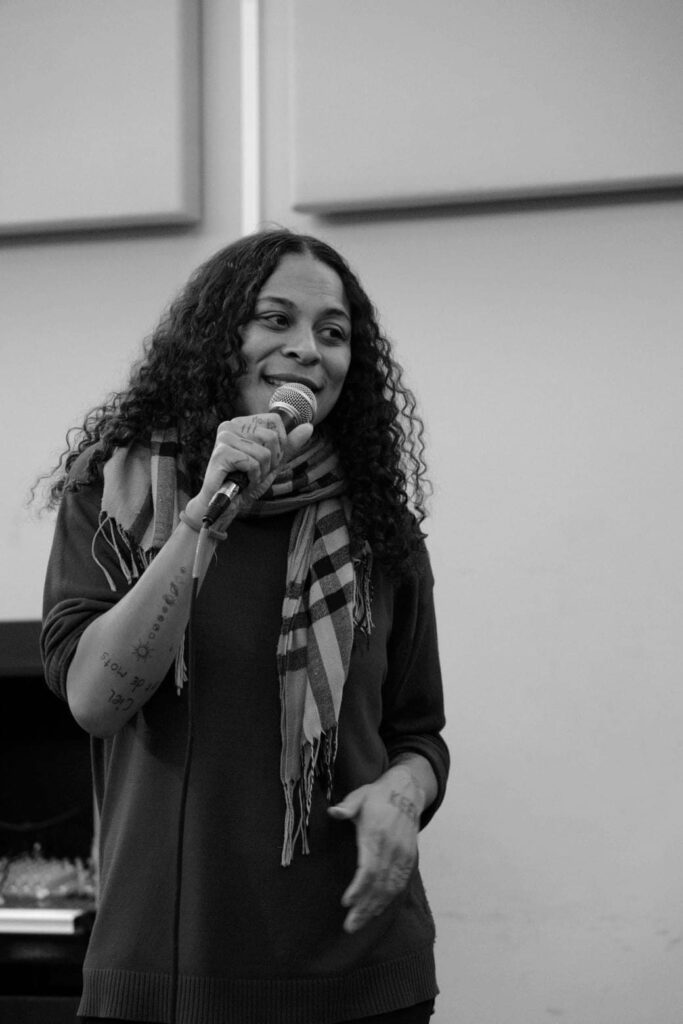
“Depuis Que Tu N’as Pas Tiré” has already been performed on stage with you and Cloé du Trèfle. How was the experience to translate your writing into a stage performance?
The experience is not over yet, it’s just the beginning of the workshop. I think when I wrote “Depuis que tu n’as pas tiré”, I was already thinking about doing it on stage. As an actoress, I always think about playing when I write. The little voice in my head was helping me imagine the translation into staging, but now it’s getting concrete. I must be sharp because I have some lyrism in writing that you can’t have on stage. It would be too much during a one-hour long play so there is a lot of work to adapt it, a work that I do with Laure Chartier. Cloé du Trèfle fell in love with my story and she’s helping me with her musical point of view. I think it’s important that we both bring the story together. Brussels is vibrating with sounds. There is sound everywhere: in the bar, in the streets, … For every place that I go, I associate music in my mind. Cloé is amazing to translate all of that into music. We want to bring a balance between speech and music. We found each other, and I like to be with her on stage. It allows us to play much more with the audience, and it’s exciting. We only adapted half of the book until now, but we want to see the big picture and continue to improve the material. We aim to be able to touch every person that will be coming to see us. I am proud to be able to work with Cloé because she’s an amazing musician. We are not always agreeing on everything but that is also why it is so enriching.
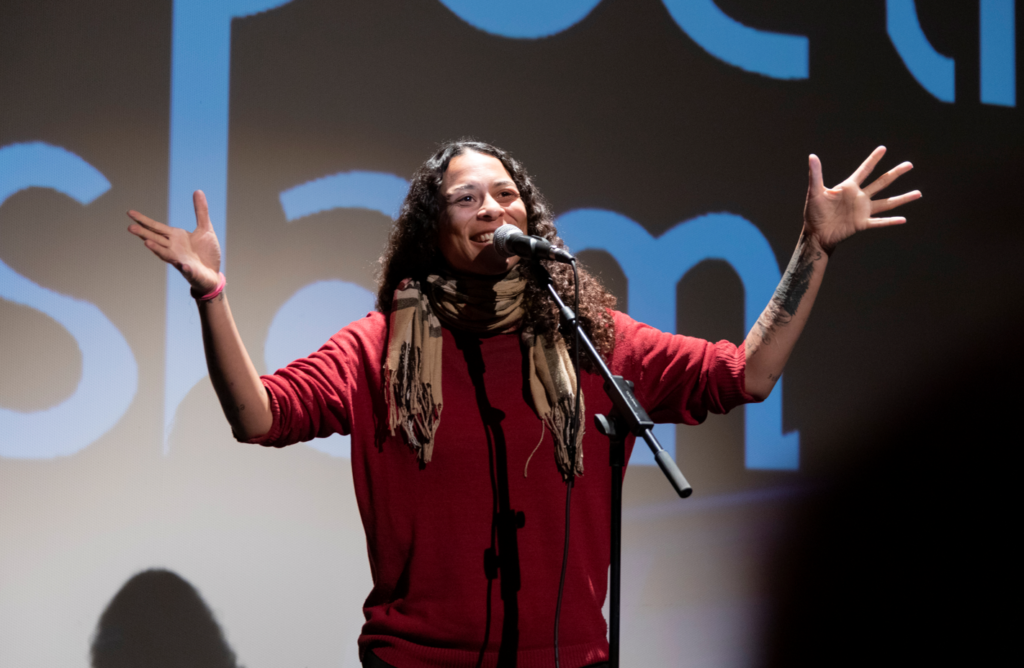
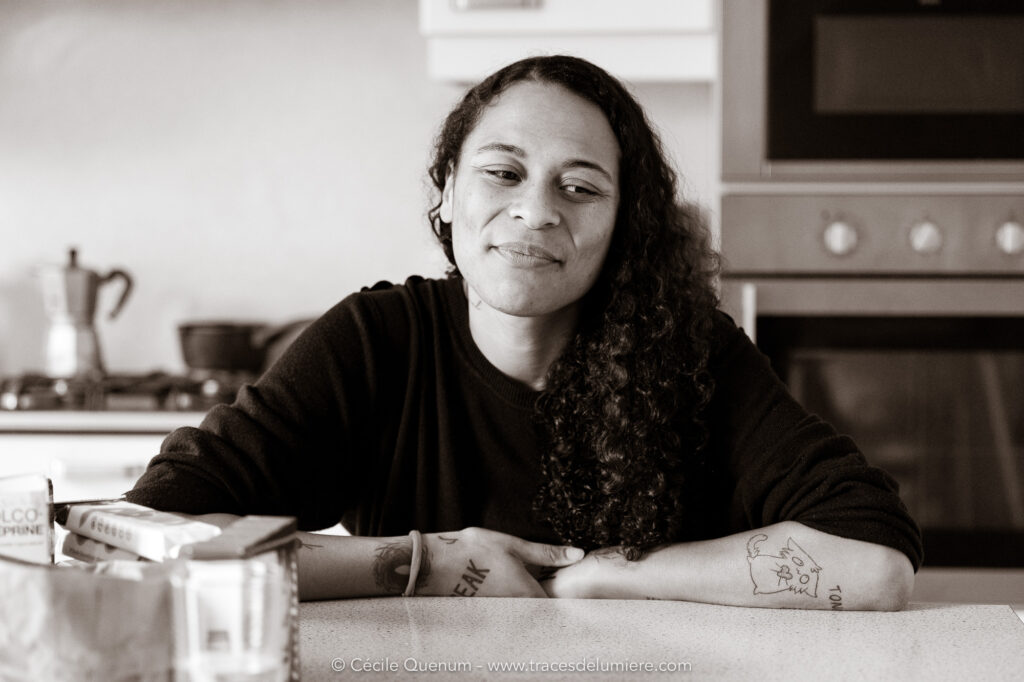
As a gender fluid person, is it important for you to be involved in the Brussels queer community?
Yes, it’s really important because it took me a lot of time to come out as a genderfluid person. It was scary for me to imagine that the reason could be the trauma that I have experienced in my childhood and not just myself. I didn’t want people to think that it’s because I have been traumatized that I became genderfluid. I spoke a lot with my psychiatrist, and we figured out that it’s not the trauma and that I had been genderfluid since before. This was liberating for me to understand that it was my real identity and not something that had broken in me. The trauma made me suffer a lot. discovering my identity too, but it is not the reason. My mother always has been open about my gender expression. She was already accepting and a queer ally at that time telling me that I could be anyone I wanted. It was OK to be myself at home, to dress like a boy or a girl and change anytime I wanted to. She was all about love and freedom and because of her, I grew up protected from the social system. In school, it was not as easy I endured a lot of racism more than LGBTQphobia. I need to bring that up now that I have more visibility. I think that I was not aware that I could be like this. I know now that it was OK and I want to fight for it. I want children who are experiencing questioning can feel normal. No one should feel like a monster or a freak at any point in their life. Queer representation help youth understand that people like them exist, that they are not alone, and that they can rely on people like themselves. Genderfluid people can have a life and be successful. It should become easier for children to have much more queer representation so that they have enough energy to focus on what they want to do with their life rather than struggling to find their own identity. Asking ourselves if we have the right to exist prevents us to seize opportunities from a young age. There is so much waste of time for queer people. I want to help change things. Inclusive language for instance helps those barriers fall quicker for so many people. You define yourself as you want but if society shows you that it is OK to be different, it opens your mind instantly. That’s why I tell in every interview that I’m genderfluid. That I’m using the pronoun “They” as well as “She” and “He” and that it’s part of my story. I don’t have a problem being misgendered since my gender is multiple. I just don’t like when it happens repeatedly and that I am being blocked in one gender by someone. I play with the codes myself. My gender expression is more feminine from a certain point of view. I don’t understand the concept of masculinity. I always say that I’m like a gay lumberjack boy trapped in the body of a woman that would also like to be a superwoman who loves women. Maybe I’m a bisexual lumberjack in the body of a black woman. It looks complicated but it’s actually simple. It is important that diversity is shown and talked about because there are so many different identities and everyone should be able to feel free. I would like children and teenagers when they look at me to think: “They are black or mixed, they are genderfluid, they have many tattoos, and they write poetry”. As soon as you understand that being out of the norm is OK, you can believe in yourself and achieve things. About the Brussels queer community, I had the opportunity to take part in “Witches On Stage” with Lisette Lombé, Joëlle Sambi, Wendy Delorme, Sara Machine and Candice Cherchilian. I feel like the queer community is the new witches of our society. I was proud to be a part of that clever project. I am also in a Flemish feminist group called Hyster-x. In organizations in Antwerp, we talked about LGBTQ+ rights in the slam community. Inclusivity in major events is also a recurrent topic for me. We are the voices that people are not used to hearing outside of the queer community. I also had the chance to slam on Bi Visibility Day with the Rainbow House. On that day, people thanked me and made me realize that the intersectional perspective of my work was helping. The term “queer” and the current growing inclusivity of the community made me feel a part of it. Before, I wasn’t exactly fitting the “gay” stereotype enough and felt left on the side. I read a lot about different sexual orientations and gender identities and educated myself about labels that we didn’t know about in the past. Now I feel completely at my place in the queer community.
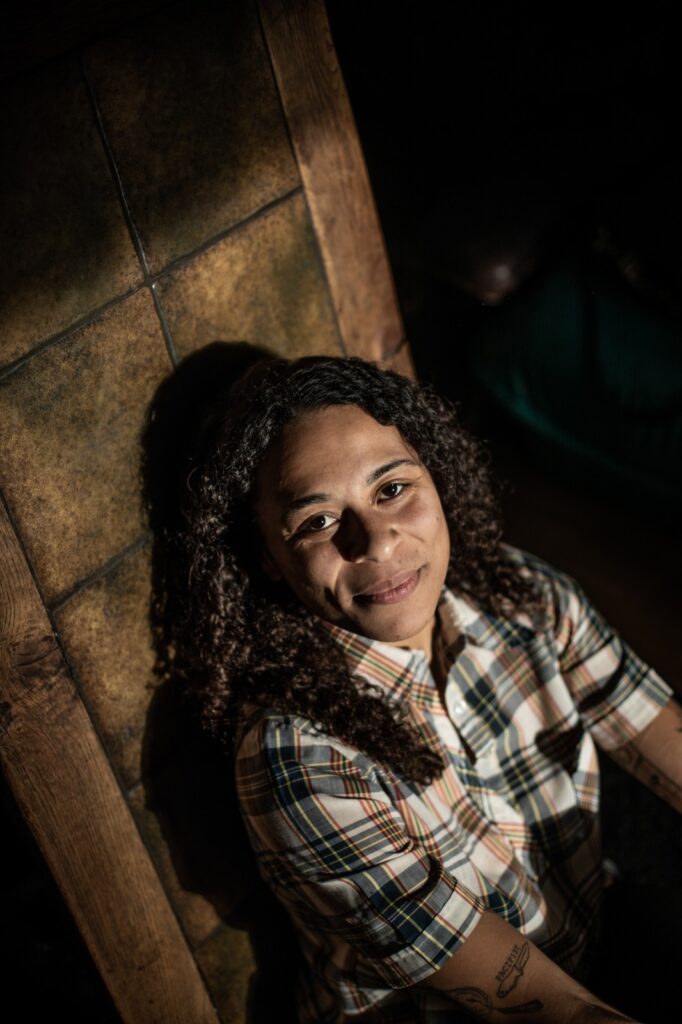
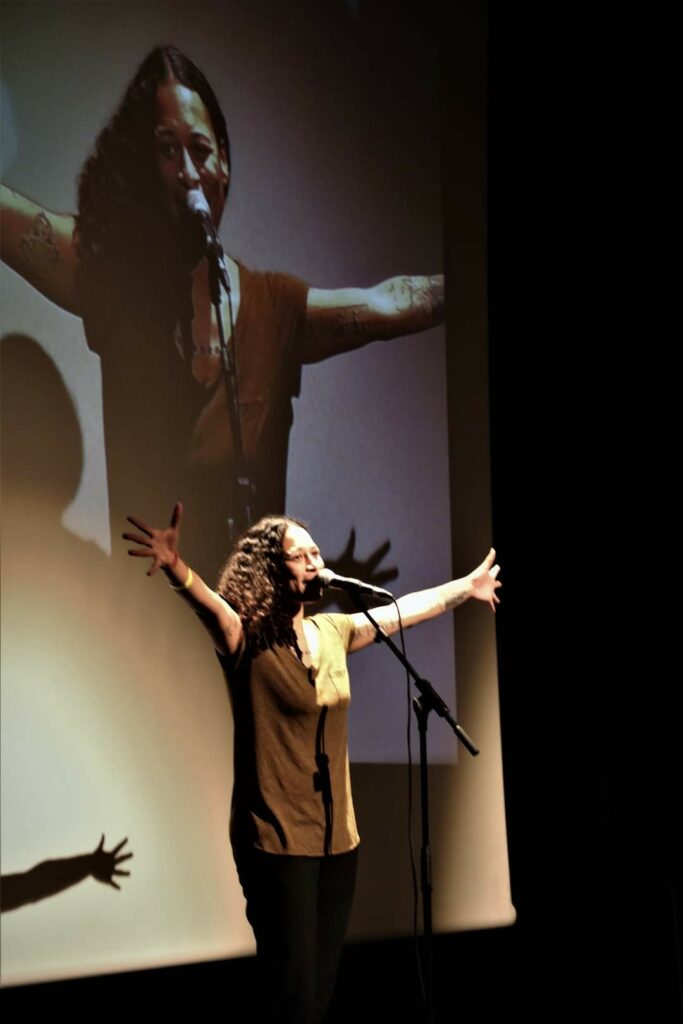
You are currently working on a new poetry book called “Sous Le Noir Du Tarmac”. Could we already get some teasing about it?
It will be a collection of all the poetry I wrote this year. This includes all the slam texts that I did during competitions and championships but also others. I am thinking of translating it into English to reach a more international audience. Probably you will be able to read “Under Black Tar”! We are currently at the third proof. It will be filled with darkness and light at the same time as I like to write. It is always important to embrace your darker side to be able to enjoy the brighter side.
Pictures credits : Sam Amezian, Cécile Quenum, Guikje Peijnenborg, Katharina Wenty, Greg Dua, Cloé du Trèfle, Antonin Weber, Hans Lucas
You may also like
-
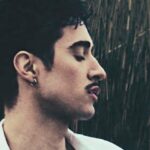
Adriano Selva: The Soulful Pop Dreamer Who Feels It All
In a world that often rewards detachment, Adriano Selva chooses to stand beautifully exposed. His
-
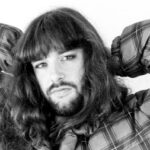
Splinters of Joy: Lylybeth Merle’s Eco‑Queer Fairy Tale of Transition and Healing
Lylybeth Merle’s new book Échardes (“Splinters”), out in February 2026, is a tender, defiant journey through gender,
-
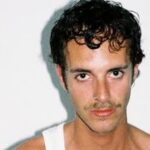
Music, Books and Brussels: A Conversation with Elliot Ibouzidene
Meeting artist Elliot Ibouzidene to talk about music, literature and his “unwritings” of Athens and Copenhagen, in
-

Renee Nicole Good: Community Mourns the Loss of a Queer Mother, Poet, and Advocate for Compassion
Renee Nicole Good, a 37‑year‑old queer writer and mother of three, was killed on Wednesday
-

The Bloemardin: Brussels’ Forgotten Rebel Spirit
If you’ve ever wandered past Brussels City Hall, you might have noticed a small statue

